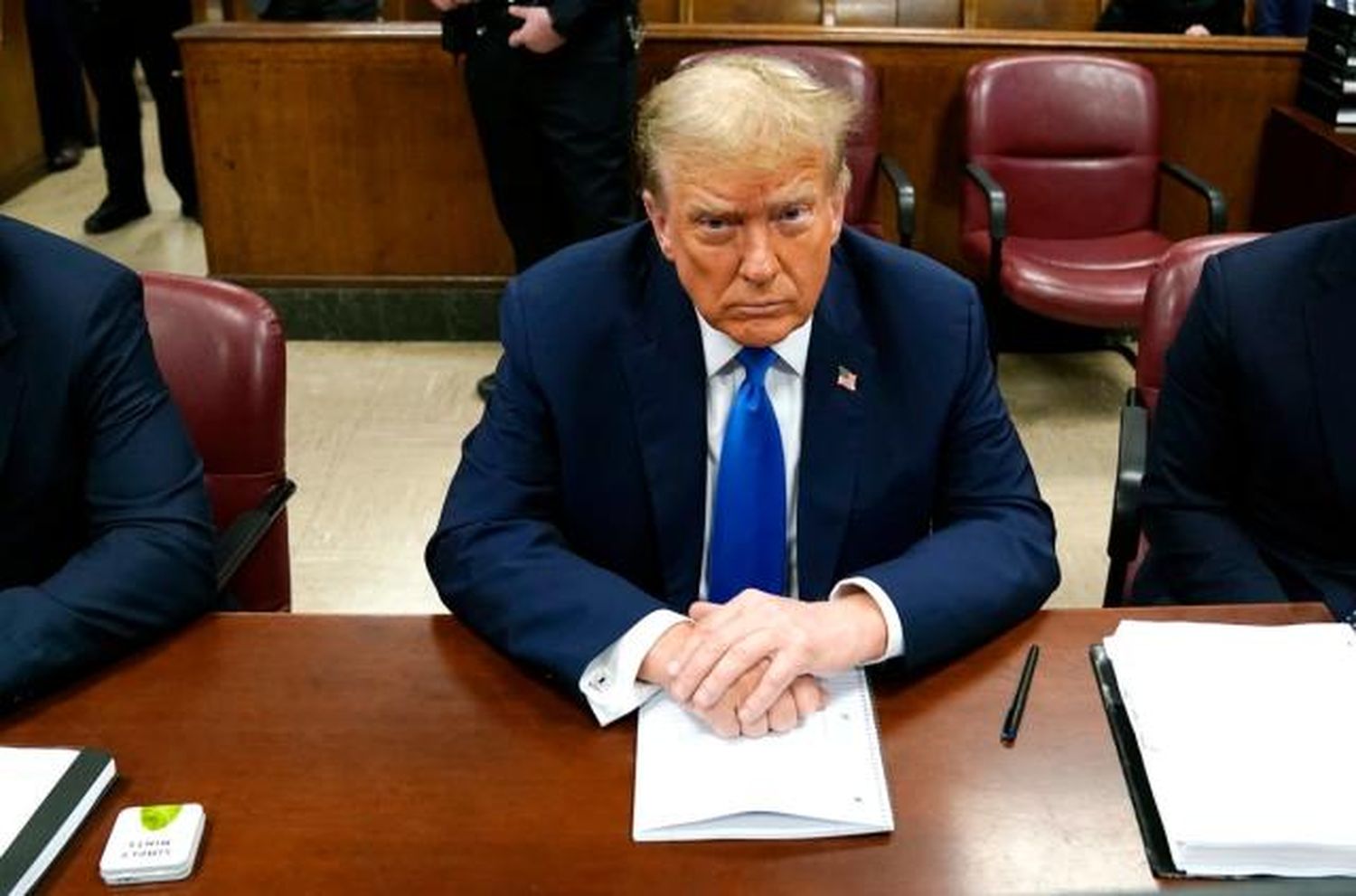Trump NY Case
Prosecutors Allege Trump Corrupted 2016 Election in Hush Money Trial
In a landmark legal confrontation, former President Donald Trump faced the opening day of his criminal trial in Manhattan, where prosecutors accused him of orchestrating a hush money scheme to influence the 2016 presidential election. This trial marks the first time a former American president has been prosecuted in a criminal case, setting a historic precedent in U.S. legal history.
The trial, held in the Manhattan Criminal Court, centers on allegations that Trump and his associates paid hush money to suppress stories about his extramarital affairs, thereby corrupting the electoral process. The prosecution claims that Trump was involved in payments made to adult film actress Stormy Daniels and former Playboy model Karen McDougal, to prevent them from publicizing their claims of affairs with him.
Matthew Colangelo, the lead prosecutor, presented the case against Trump, describing the payments as part of a "catch and kill" strategy employed to safeguard Trump's presidential campaign from negative publicity. Colangelo argued that these actions were not merely unseemly attempts to influence the election but constituted clear acts of election fraud.
"Donald Trump orchestrated a criminal scheme to corrupt the 2016 presidential election," Colangelo told the jury, emphasizing that the case was about significant breaches of legal and ethical standards, not just about personal indiscretions.
The prosecution's narrative detailed how Trump's former lawyer, Michael Cohen, facilitated a payment of $130,000 to Daniels to prevent her from going public with her story about an alleged sexual encounter with Trump. Similarly, American Media Inc., the parent company of the National Enquirer, paid $150,000 to McDougal for her story only to suppress it from publication — a practice known as "catch and kill."
The trial also highlighted the legal mechanisms allegedly abused to conceal these transactions. Prosecutors argue that Trump's company falsified business records, marking payments to Cohen as legal expenses. These actions led to Trump facing 34 felony counts of falsifying business records.
Trump's defense team, led by attorneys Todd Blanche and Susan Necheles, countered the allegations by questioning the credibility of Cohen, who they described as a disgruntled former employee with a vendetta against Trump. The defense portrayed the payments as legal and standard practice, vehemently denying that they were intended to influence the election.
The courtroom atmosphere was tense, with the presence of numerous media personnel underscoring the trial's high stakes and public interest. Trump, who has consistently labeled the proceedings as a "witch hunt" and "election interference," appeared composed, occasionally whispering to his lawyers during the session.
The trial's outcome could have profound implications not only for Trump, who faces potential imprisonment if convicted, but also for the broader political landscape in the United States. Despite the charges, a conviction would not bar Trump from running for or becoming president again, as the case is being tried in a state court, which does not allow for presidential pardons.
As the trial progresses, key witnesses, including Cohen, Daniels, and David Pecker, former head of American Media Inc., are expected to testify, potentially providing further insights into the intricacies of the hush money transactions and their cover-up.
The trial continues to draw global attention, with its developments likely to be scrutinized for their legal and electoral implications. As Trump faces these legal battles, the court's decisions in this case could significantly influence public perception and his political future.

